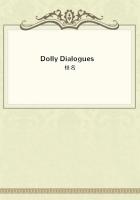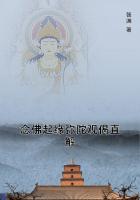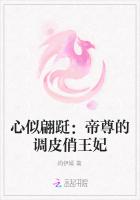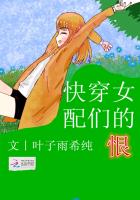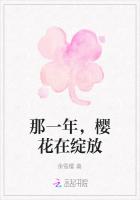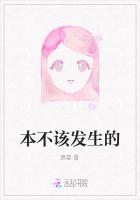She writes to her friend that these contributors to the quarterly press are greatly feared in literary London, and there is in her letter a sense of tremor and exhaustion. And what nights did the heads of the critics undergo after the meeting? Lewes, whose own romances are all condoned, all forgiven by time and oblivion, who gave her lessons, who told her to study Jane Austen? The others, whose reviews doubtless did their proportionate part in still further hunting and harrying the tired English of their day? And before Harriet Martineau she bore herself reverently. Harriet Martineau, albeit a woman of masculine understanding (we may imagine we hear her contemporaries give her the title), could not thread her way safely in and out of two or three negatives, but wrote--about this very Charlotte Bronte: "I did not consider the book a coarse one, though I could not answer for it that there were no traits which, on a second leisurely reading, I might not dislike." Mrs.
Gaskell quotes the passage with no consciousness of anything amiss.
As for Lewes's vanished lesson upon the methods of Jane Austen, it served one only sufficient purpose. Itself is not quoted by anyone alive, but Charlotte Bronte's rejoinder adds one to our little treasury of her incomparable pages. If they were twenty, they are twenty-one by the addition of this, written in a long-neglected letter and saved for us by Mr. Shorter's research, for I believe his is the only record: "What sees keenly, speaks aptly, moves flexibly, it suits her to study; but what throbs fast and full, though hidden, what blood rushes through, what is the unseen seat of life and the sentient target of death--that Miss Austen ignores."When the author of Jane Eyre faltered before six authors, more or less, at dinner in London, was it the writer of her second-class English who was shy? or was it the author of the passages here to follow?--and therefore one for whom the national tongue was much the better? There can be little doubt. The Charlotte Bronte who used the English of a world long corrupted by "one good custom"--the good custom of Gibbon's Latinity grown fatally popular--could at any time hold up her head amongst her reviewers; for her there was no sensitive interior solitude in that society. She who cowered was the Charlotte who made Rochester recall "the ****** yet sagacious grace" of Jane's first smile; she who wrote: "I looked at my love;it shivered in my heart like a suffering child in a cold cradle";who wrote: "To see what a heavy lid day slowly lifted, what a wan glance she flung upon the hills, you would have thought the sun's fire quenched in last night's floods." This new genius was solitary and afraid, and touched to the quick by the eyes and voice of judges. In her worse style there was no "quick." Latin-English, whether scholarly or unscholarly, is the mediate tongue. An unscholarly Latin-English is proof against the world. The scholarly Latin-English wherefrom it is disastrously derived is, in its own nobler measure, a defence against more august assaults than those of criticism. In the strength of it did Johnson hold parley with his profounder sorrows--hold parley (by his phrase), make terms (by his definition), give them at last lodging and entertainment after sentence and treaty.
And the meaner office of protection against reviewers and the world was doubtless done by the meaner Latinity. The author of the phrase "The child contracted a partiality for his toys" had no need to fear any authors she might meet at dinner. Against Charlotte Bronte's sorrows her worse manner of English never stands for a moment.
Those vain phrases fall from before her face and her bared heart.
To the heart, to the heart she took the shafts of her griefs. She tells them therefore as she suffered them, vitally and mortally. "Agreat change approached. Affliction came in that shape which to anticipate is dread; to look back on, grief. My sister Emily first declined. Never in all her life had she lingered over any task that lay before her, and she did not linger now. She made haste to leave us." "I remembered where the three were laid--in what narrow, dark dwellings." "Do you know this place? No, you never saw it; but you recognize the nature of these trees, this foliage--the cypress, the willow, the yew. Stone crosses like these are not unfamiliar to you, nor are these dim garlands of everlasting flowers. Here is the place." "Then the watcher approaches the patient's pillow, and sees a new and strange moulding of the familiar features, feels at once that the insufferable moment draws nigh." In the same passage comes another single word of genius, "the sound that so wastes our strength." And, fine as "wastes," is the "wronged" of another sentence--"some wronged and fettered wild beast or bird."It is easy to gather such words, more difficult to separate the best from such a mingled page as that on "Imagination": "A spirit, softer and better than human reason, had descended with quiet flight to the waste"; and "My hunger has this good angel appeased with food sweet and strange"; and "This daughter of Heaven remembered me to-night; she saw me weep, and she came with comfort; 'Sleep,' she said, 'sleep sweetly--I gild thy dreams.'" "Was this feeling dead?
I do not know, but it was buried. Sometimes I thought the tomb unquiet."Perhaps the most "eloquent" pages are unluckily those wherein we miss the friction--friction of water to the oar, friction of air to the pinion--friction that sensibly proves the use, the buoyancy, the act of language. Sometimes an easy eloquence resembles the easy labours of the daughters of Danaus. To draw water in a sieve is an easy art, rapid and relaxed.

